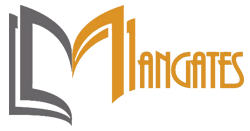Reflective Practice is a theory by which modern and traditional self-improvement ideas can be more clearly defined, refined, expanded, adapted, taught, adopted and applied, for the purposes of personal development, teaching and coaching, and wider organisational improvement. Reflective Practice enables clearer thinking, and reduces our tendencies towards emotional bias.
This Workplace Reflective Practice training is suitable for anyone within an organisation and will assist the participants in improving their working practices and increasing business performance. Whether on the shop floor or in head office, everyone could benefit from the principles within this training.
Enhance the self-development skills of your employees to help ensure business success.
The process of Reflective Practice has many advantages. It means, as professionals, your employees are keeping up-to-date with the latest thinking and methodologies. Reflection also helps to develop emotional intelligence, particularly if we reflect on feelings, reactions and behaviours. Finally, reflection is the key to improvement for both the individual and the organisation.
Essentially, Reflective Practice is a method of assessing our own thoughts and actions, for the purpose of personal learning and development. Reflective Practice is a very adaptable process. It is a set of ideas that can be used alongside many other concepts for training, learning, personal development, and self-improvement. Reflective Practice is mainly concerned with self-development as it enables future personal growth.
The process of Reflective Practice has many advantages. It means, as a professional, you are keeping up-to-date with the latest thinking and methodologies. Reflection also helps to develop emotional intelligence, particularly if we reflect on feelings, reactions and behaviours. Finally, reflection is the key to improvement.
Duration Learning Credits
1 Day – 8 hours of 8 PDU’s
Session
Public Classroom Pricing:
Early Bird Price: AUD 649.00
Regular Price: AUD 799.00
Instructor-Led Virtual Live Pricing:
Early Bird Price: AUD 549.00
Regular Price: AUD 699.00
Private Group/ In-House Learning:
Have a group of 3 or more people?
Register yourself with a special pricing and
request the training exclusively
● Introduction and Objectives – Developing an understanding of what Workplace Reflective Practice, how it can help us and what we intend to learn from this information.
● Self-Assessment – A questionnaire with discussion review to help participants identify their current thinking towards reflective practice and its implementation.
● The Purpose and Benefits of Reflective Practice – Identifying where reflective practice can improve our current working approach and how it can best be utilised for success. Includes a TED Talks video that is used as a case study to identify practical applications of the technique.
● Personal SWOT Analysis – Using strengths, weaknesses, opportunities and threats as a personal reflection tool and to help participants establish the basics of personal reflection.
● Two Aspects of Workplace Reflective Practice – Reviewing ‘Reflection-in-action’ and ‘Reflection-on-action’ and using an exercise to embed understanding of this approach to reflective practice.
● Before Reflecting – Highlighting the factors that should be in place before we consider reflection including balancing subjective and objective reflection.
● Maintaining Objectivity – Using an activity to help participants understand both the importance of and how to remain objective when reflecting. With a focus on prejudice and assumptions.
Various experts have produced Reflective Practice models to help people use Reflective Practice more deliberately, proactively, and effectively. These course materials explore five models during the course. By studying the purpose and use of each, participants will find that they prefer some to others, and that some models are better used for different situations.
● The Simple Model – Understanding the Driscoll and Teh Model of Reflection (What?, So what?Now what?) and how to use it. With a short activity to embed learning.
● The REFLECT Model – Learning how to apply the Lawrence-Wilkes REFLECT Model using an activity and exercise.
● Experiential Learning – Outlining David Kolb’s work on the stages of the learning process and how this can be applied to reflective practice. Using activities to embed understanding.
● The Reflective Cycle – Using the Gibbs’ Reflective Cycle Model to demonstrate the importance of conclusions and action plans to the process of reflective practice.
● Bloom’s Taxonomy – Presenting this well-known model to help participants identify how to structure workplace reviews.
● Recording Reflections – Helping participants appreciate the importance of recording information and giving them a structure and framework for approaching this.
● Summary Activity – An activity that helps pull all of the learning together and reminds participants of the elements they have covered throughout the day.
This course is highly interactive and contains exercises and activities to help keep participants engaged and to ensure learning is embedded.
Anybody who is interested in learning Workplace Reflective Practice Skills.
At the end of this high performing teams training course, you will be able to:
● Describe the purpose and benefits of reflection
● Identify types of workplace reflection
● Learn from experiences
● Improve personal and team performance
● Use different business models for reflection
